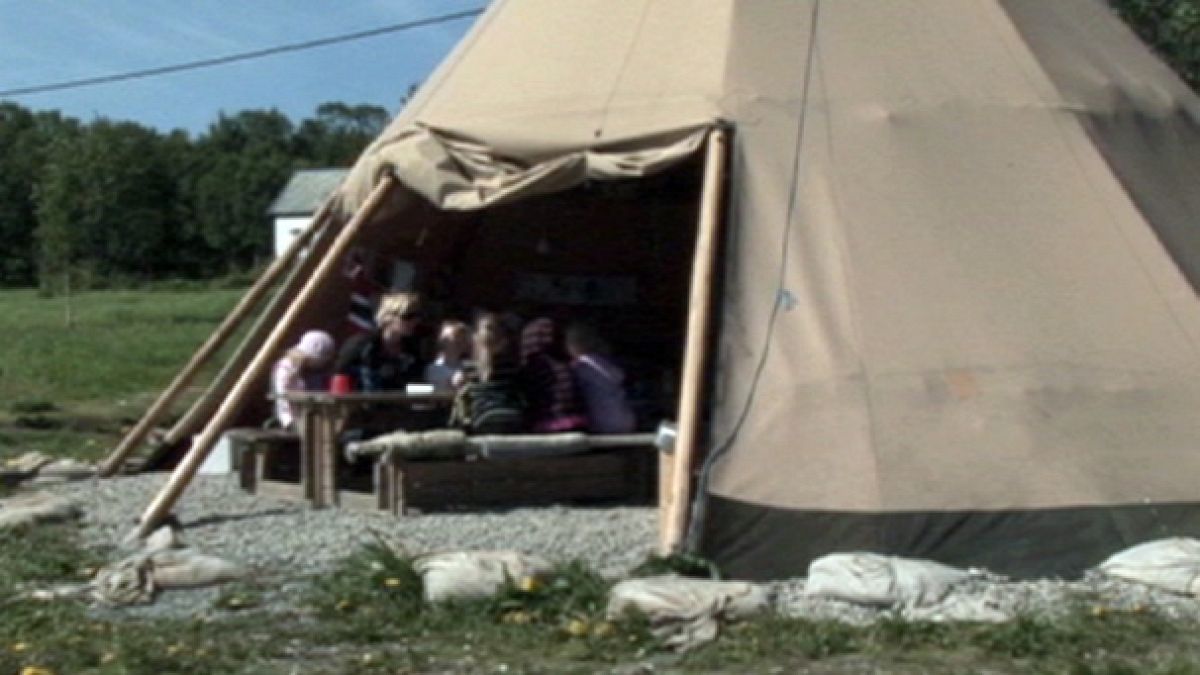For people living traditional lives in the jungles of Indonesia, nature can be a challenge. One organisation is setting up informal classes for nomads and hunters with the aim of teaching people how to fight for their rights.
In the rainforests of southern Sumatra live the Orang Rimba – a nomadic group of hunter-gatherers who are struggling to maintain their traditional way of life.
The land where the Orang Rimba live has been turned into a national park, prompting fears that they would not longer be allowed to hunt or fish, meaning they would have to leave.
But classes for adults are equipping the people to fight for their rights over the land where they have lived for generations.
For more information see
en.wikipedia.org/wiki/Butet_Manurung
In the far Artic north of Norway, the Tusseladden Outdoor Kindergarten has been teaching pre-schoolers aged three to five outdoors for 20 years, with great results.
They teach outdoors all year round, using a traditional tent for shelter and to rest in, but most of the time is spent outside. Preparing backpacks for a mountain hike is part of the teaching.
The teachers and the children’s parents feel that modern childhood has become too protected, regimented and technology-centred. They believe that outdoor teaching makes children stronger, more resilient and also more creative.
Ten percent of all kindergartens in Norway are outdoor schools, and they often boast more male teachers than indoor kindergartens.
The floating school in Prek Toal in Cambodia is two hours by boat from Angkor in Cambodia. The people there live by fishing in the lake and breeding crocodiles.
Most of the people are too poor to build a home on dry land. They live on floating houses instead, where they can fish and dry their catch to sell.
Life is expensive as everything has to be brought in by boat.
The school is also floating and changes its location according to the seasons. The playground is surrounded by wires/bars so that footballs and other toys do not end up in the water.
In these conditions, it is not surprising that not all children go to school. For a start, they have to be able to swim before they can attend and they also need a boat to get to school.
But the dry season is high season for fishing and many children work with their parents during these months. According to the head teacher at the school, only 30 percent to 35 percent of local children come to school. And almost all the boys leave school at the end of primary class to become fishermen.
Shortages of staff and equipment are additional difficulties and low salaries for teachers don’t help either.
